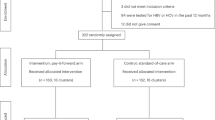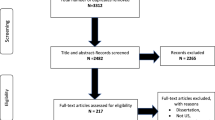Abstract
Background
Sub-Saharan Africa has the highest global prevalence of HIV, and the prevention of transmission between HIV-seropositive and -serodiscordant sexual partners is a critical component of HIV prevention efforts. Behavioral interventions that have demonstrated efficacy in reducing risk behaviors associated with HIV transmission and infection and have been translated, or adapted, to a variety of settings.
Purpose
This manuscript examined implementation of behavioral interventions within resource limited health care delivery settings, and their adoption and integration within service programs to achieve sustainability.
Methods
The CDC/Partner Program, an evidence-based risk reduction intervention, was implemented in Community Health Centers (CHCs) in Zambia using a staged technology transfer process, the Training the Trainers Model. Provincial workshops and training workshops on the provision of the intervention were used to establish a cadre of trainers to provide on-site intervention facilitators capable of ultimately providing coverage to over 300 CHCs.
Results
CHC staff provided the intervention to clinic attendees in four provinces over 4 years while also training new facilitators. The implementation process addressed multi-level issues within the context of training, consultants, decision making, administration, and evaluation as well as practical considerations surrounding travel, training, staff compensation and ongoing quality assurance.
Conclusions
The majority of challenges to implementation and maintenance were addressed and resolved, with the exception of structural limitations related to restricted resources for personnel and funding. Strengths of the program included its collaborative structure, active program leadership, commitment and support at the provincial level, the use of task shifting by existing clinic staff, the train the trainer model and ongoing quality control. Enhanced infrastructure is needed in for future implementation, such as training centers within each province, certified expert coaches and annual workshops and system changes to ensure available staff.



Similar content being viewed by others
References
Townsend L, Mathews C, Zembe Y. A systematic review of behavioral interventions to prevent HIV infection and transmission among heterosexual, adult men in low-and middle-income countries. Prev Sci. 2013;14(1):88–105. doi:10.1007/s11121-012-0300-7.
Saleh-Onoya D, Reddy PS, Ruiter RA, Sifunda S, Wingood G, van den Borne B. Condom use promotion among isiXhosa speaking women living with HIV in the Western Cape Province, South Africa: a pilot study. AIDS Care. 2009;21(7):817–25. doi:10.1080/09540120802537823.
Jones DJ, Chitalu N, Ndubani P, et al. Sexual risk reduction among Zambian couples. SAHARA J. 2009;6(2):69–75.
Glasgow RE, Goldstein MG, Ockene JK, Pronk NP. Translating what we have learned into practice. Principles and hypotheses for interventions addressing multiple behaviors in primary care. Am J Prev Med. 2004;27(2 Suppl):88–101. doi:10.1016/j.amepre.2004.04.019.
Republic of Zambia Ministry of Health and National AIDS Council. Monitoring the Declaration of Commitment on HIV and AIDS and the Universal Access: Biennial Report. 2010. http://data.unaids.org/pub/Report/2010/zambia_2010_country_progress_report_en.pdf. Accessed 13 Jun 2013.
Peltzer K, Ramlagan S, Jones D, Weiss SM, Fomundam H, Chanetsa L. Efficacy of a lay health worker led group antiretroviral medication adherence training among non-adherent HIV-positive patients in KwaZulu-Natal, South Africa: results from a randomized trial. SAHARA J. 2012;9(4):218–26. doi:10.1080/17290376.2012.745640.
Uwimana J, Zarowsky C, Hausler H, Jackson D. Engagement of non-government organisations and community care workers in collaborative TB/HIV activities including prevention of mother to child transmission in South Africa: opportunities and challenges. BMC Health Serv Res. 2012;12:233. doi:10.1186/1472-6963-12-233.
Ndou T, van Zyl G, Hlahane S, Goudge J. A rapid assessment of a community health worker pilot programme to improve the management of hypertension and diabetes in Emfuleni sub-district of Gauteng Province, South Africa. Glob Health Action. 2013;6:19228. doi:10.3402/gha.v6i0.19228.
Uwimana J, Zarowsky C, Hausler H, Jackson D. Training community care workers to provide comprehensive TB/HIV/PMTCT integrated care in KwaZulu-Natal: lessons learnt. Trop Med Int Health. 2012;17(4):488–96. doi:10.1111/j.1365-3156.2011.02951.x.
Nxumalo N, Goudge J, Thomas L. Outreach services to improve access to health care in South Africa: lessons from three community health worker programmes. Glob Health Action. 2013;6:19283. doi:10.3402/gha.v6i0.19283.
Morris MB, Chapula BT, Chi BH, et al. Use of task-shifting to rapidly scale-up HIV treatment services: experiences from Lusaka, Zambia. BMC Health Serv Res. 2009;9:5. doi:10.1186/1472-6963-9-5.
USAID Health Policy Initiative. Creating an Enabling Environment for Task Shifting in HIV and AIDS Services: Recommendations Based on Two African Country Case Studies. 2010. http://www.healthpolicyinitiative.com/Publications/Documents/1109_1_Task_Shifting_Summary_FINAL_05_06_10_acc.pdf. Accessed 13 Jun 2013.
USAID Research and Evaluation Report. Task Shifting in HIV/AIDS Service Delivery: An Exploratory Study of Expert Patients in Uganda. 2011. http://www.hciproject.org/sites/default/files/Uganda_Expert_Patients_Nov11.pdf. Accessed 13 Jun 2013.
Regional East African Community Health (REACH) Policy Initiavite. Task shifting to optimize the roles of health workers to improve the delivery of maternal and child healthcare. 2010. http://www.unfpa.org/sowmy/resources/docs/library/R083_Nabudere_etal_2010_Uganda_HRHMNHJun10.pdf. Accessed 13 Jun 2013.
World Health Organization. Task shifting: rational redistribution of tasks among health workforce teams : global recommendations and guidelines. 2008. http://www.who.int/healthsystems/TTR-TaskShifting.pdf. Accessed 13 Jun 2013.
Weiss SM, Jones DL, Lopez M, Villar-Loubet O, Chitalu N. The many faces of translational research: a tale of two studies. Transl Behav Med. 2011;1(2):327–30. doi:10.1007/s13142-011-0044-0.
Fixsen DL, Blase KA, Naoom SF, Wallace F. Core implementation components. Res Soc Work Pract. 2009;19(5):531–40.
Fixsen DL, Naoom SF, Blase KA, Friedman RM, Wallace F. Implementation research: a synthesis of the literature. Tampa: University of South Florida, Louis de la Parte Florida Mental Health Institute, The National Implementation Research Network (FMHI Publication #231); 2005.
Jones DL, Weiss SM, Malow R, et al. A brief sexual barrier intervention for women living with AIDS: acceptability, use, and ethnicity. J Urban Health. 2001;78(4):593–604. doi:10.1093/jurban/78.4.593.
Jones DL, Weiss SM, Bhat GJ, Feldman D, Bwalya V, Budash D. A Sexual Barrier Intervention for HIV+/− Zambian Women: Acceptability and Use of Vaginal Chemical Barriers. J Multicult Nurs Health. 2004;10(1):24–31.
Jones DL, Weiss SM, Chitalu N, et al. Acceptability and use of sexual barrier products and lubricants among HIV-seropositive Zambian men. AIDS Patient Care STDS. 2008;22(12):1015–20. doi:10.1089/apc.2007.0212.
Jones DL, Weiss SM, Chitalu N, et al. Sexual risk intervention in multiethnic drug and alcohol users. Am J Infect Dis. 2007;3(4):169–76.
Jones DL, Weiss SM, Waldrop-Valverde D, Chitalu N, Mumbi M, Vamos S. Community-based risk eeduction in Zambia. Open Health Serv Policy J. 2010;1:38–44.
Vamos S., Mumbi M., Cook R., Chitalu N., Weiss S.M., Jones D.L. Translation and sustainability of an HIV prevention intervention in Lusaka, Zambia. Transl Behav Med. 2013. doi:10.1007/s13142-013-0237-9.
Acknowledgements
We gratefully acknowledge the contribution of the CDC/Partner team: Miriam Mumbi, Mary-cheer Sinyinda, Gilbert Chitu, Dorothy Mwambaza, Romanus Mphande, Irene Chituwo, Rosemary Banda and Emmanuel Zulu. This study was supported through a cooperative agreement between the Zambia Centers for Disease Prevention and Control and the University Teaching Hospital of the University of Zambia School of Medicine, PD: N. Chitalu, 1U2GPS00049, and preliminary studies were supported by grants from the National Institutes of Health; S. Weiss, PI: R01MH63630; D. Jones, PI: R24HD43613, R01HD058481.
Ethics statement
All procedures followed were in accordance with the ethical standards associated with the Helsinki Declaration of 1975, as revised in 2000, concerning human rights and informed consent. All procedures concerning the treatment of research participants were in accordance with the ethical standards of the Institutional Review Board of the University of Miami Miller School of Medicine and the Research Ethics Committee of the University of Zambia.
Conflict of interest
The authors have no conflicts of interest to disclose.
Author information
Authors and Affiliations
Corresponding author
Rights and permissions
About this article
Cite this article
Jones, D., Weiss, S. & Chitalu, N. HIV Prevention in Resource Limited Settings: A Case Study of Challenges and Opportunities for Implementation. Int.J. Behav. Med. 22, 384–392 (2015). https://doi.org/10.1007/s12529-014-9397-3
Published:
Issue Date:
DOI: https://doi.org/10.1007/s12529-014-9397-3




